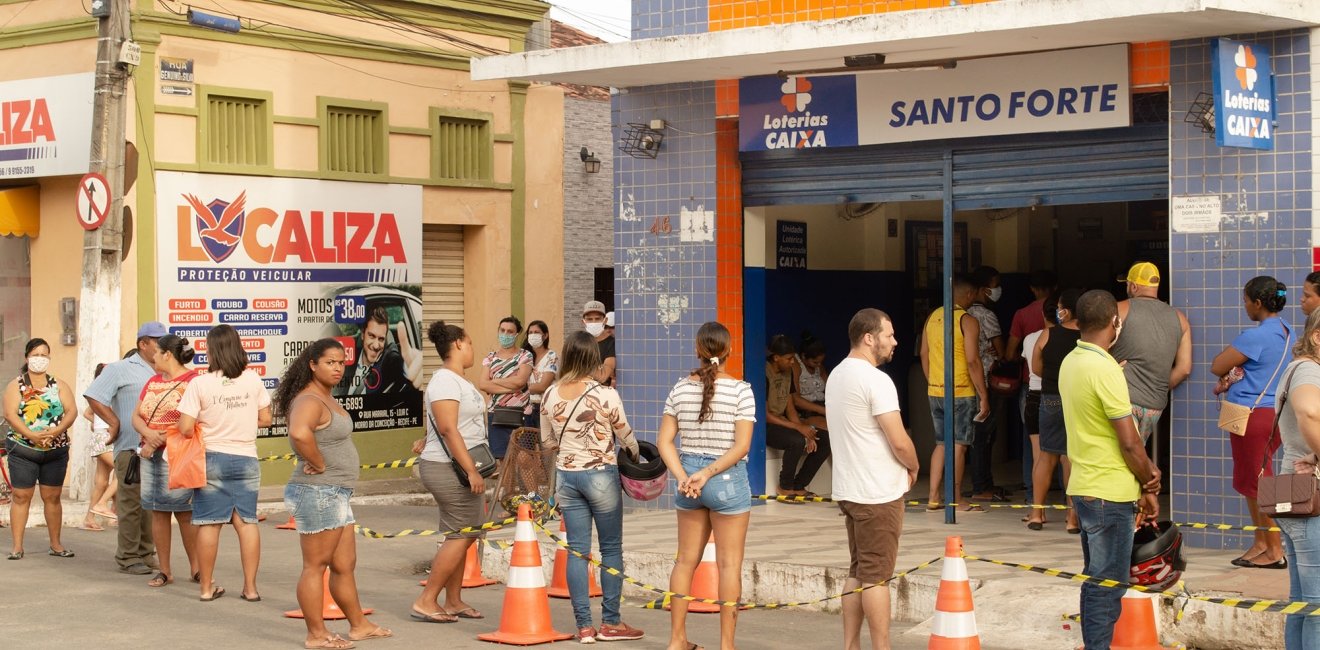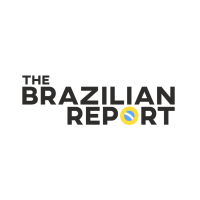
A blog of the Brazil Institute
Despite significant improvement in the 2000s, levels of extreme poverty shot up during Brazil’s economic crisis of 2015 and 2016. Now, according to a study carried out by the think-tank Fundação Getúlio Vargas, the number of severely impoverished people in the country has fallen to its lowest level in at least 16 years, thanks to the emergency aid program implemented by the Jair Bolsonaro government to soften the immediate financial blow of the Covid-19 pandemic.
The level of extreme poverty—understood as families living on less than $1.90 per day—fell to 3.3 percent of the population in June, a dramatic fall from the 6.9 percent recorded last year. Meanwhile, the rate of households earning less than $5.50 a day dropped to 21.7 percent, down almost four percentage points from June 2019.
The study even highlights a reduction in poverty levels between May and June of this year, as the emergency aid program began reaching more families. Some 50 percent of the population received the benefit in June, compared to 45 percent in May.
Economist Daniel Duque, the author of the study, mentions that without the benefit Brazil would probably have seen its inequality levels deepen during the pandemic, as wealthier strata of the population saw their income grow without receiving the benefit.
However, Mr. Duque warns that the aid program is not sustainable and the positive trend in terms of poverty reduction is likely to reverse once the benefit ends—regardless of whether the government succeeds in launching a new cash transfer scheme entitled Renda Brasil (Income Brazil), slated to replace the long-standing Bolsa Família welfare program.
“The volume of resources from the emergency benefit is far superior to anything the government could propose with Renda Brasil. Even if the program is super focused and well-managed—which is already difficult—you would not have such a big capacity to replace the income lost during the pandemic as you have with the emergency benefit,” Mr. Duque tells The Brazilian Report.
Indeed, the emergency aid program weighs heavily on the government's budget, costing around R$50 billion every month. As of two weeks ago, the administration had spent nearly R$167 billion on the coronavirus benefit, according to a consultancy linked to Brazil’s National Congress.
The heavy cost of the emergency benefit contrasts with how much the government spends on other social programs. Bolsa Família—the globally acclaimed cash-transfer program created by former President Lula's government in 2003—comes at an annual cost of R$30 billion.
Income transfers are not the only way to address poverty, says Mr. Duque, adding that areas such as education and health also have direct impacts on the number of people living in misery. The economist argues that Brazil should increase medium-term social spending, conditioned to reforms and structural shifts on the economic front.
A Popularity Boost for the President
Political analysts who have been monitoring the popularity of President Jair Bolsonaro's government affirm that the far-right president has seen gains in his approval ratings thanks to the coronavirus benefit program.
In July, a survey commissioned by financial services firm XP Investimentos found that the percentage of those who classify Mr. Bolsonaro's administration as ‘great or good’ reached 30 percent, up two percentage points from the previous month. Rejection rates also fell 45 percent, three points less than in June. The research was carried out by pollster Ipespe.
"From May onward, we saw an increase of 5 percent in Mr. Bolsonaro's popularity and a 5 percent fall in his rejection,” explains Erich Decat, a political analyst at XP Investimentos, speaking to The Brazilian Report. He adds that he believes this is a knock-on effect of the coronavirus benefit.
According to Mauricio Moura, chief executive officer at polling company Ideia Big Data, even more important than the ups and downs of Mr. Bolsonaro's approval ratings is the change in demographics of his supporters.
“Mr. Bolsonaro substituted his support from the urban middle class with [working-class] groups in small and medium-sized cities,” Mr. Moura tells The Brazilian Report, mentioning that the resignation of former Justice Minister Sergio Moro cost the president a fat [10 percentage point] share of approval among richer groups in metropolitan areas. With the aid program, he was able to nearly recover his losses, replacing their approval with that of different groups.
But Mr. Moura points toward a looming crisis for the president: around 80 percent of the people surveyed said they believed the aid program would be here to stay. He explained that this belief was tied to social status, with poorer individuals living further from urban centers being more inclined to think the COVID-19 aid program will continue: “The more simple the person is, the smaller the income, and the more distant to urban centers, more the person believes this is permanent,” said Mr. Moura.
Though the program went into force in April, the largest bulk of payments did not happen until May due to delays and technical problems in the benefit approval system.
On May 18th, the XP/Ipespe poll showed Bolsonaro's approval rate at 25 percent. In the latest survey, from July 20th, his approval rate has reached 30 percent.
Like the content? Subscribe to the Brazilian Report using the discount code BI-TBR20 to get 20 percent off any annual plan.

Author

Brazil Institute
The Brazil Institute—the only country-specific policy institution focused on Brazil in Washington—aims to deepen understanding of Brazil’s complex landscape and strengthen relations between Brazilian and US institutions across all sectors. Read more

Explore More in Brazil Builds
Browse Brazil Builds
They're Still Here: Brazil's unfinished reckoning with military impunity




